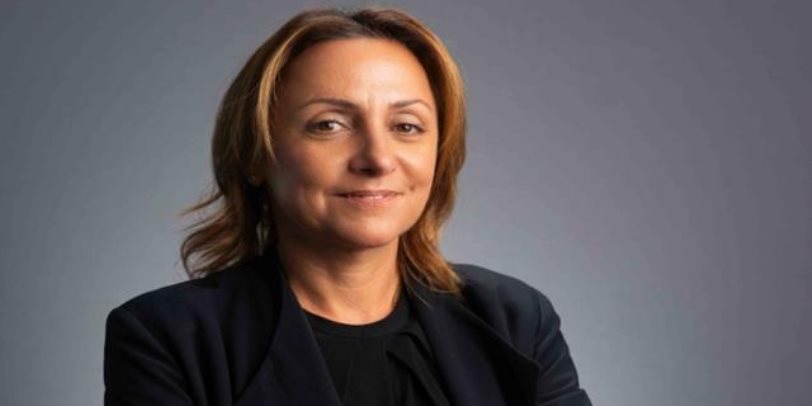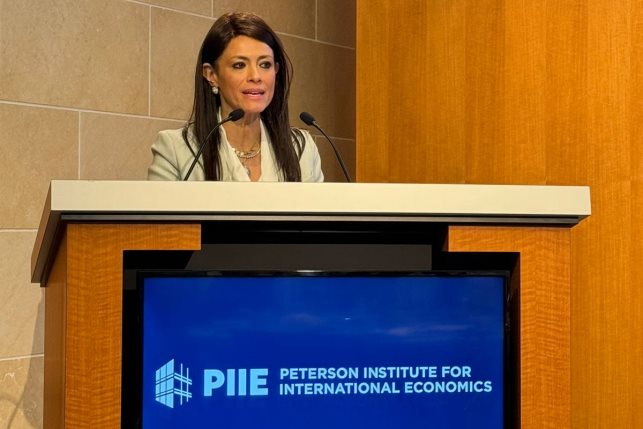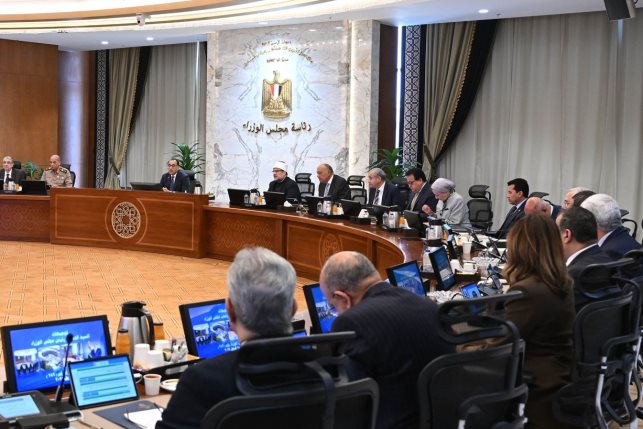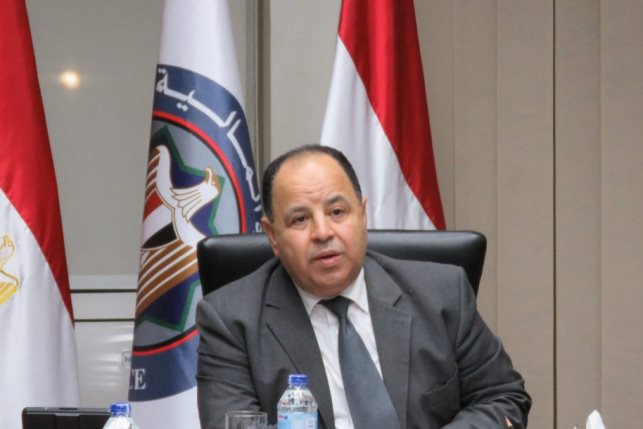Supporting Women, Advancing FinTech and Inclusive Finance with Visa’s Leila Serhan
Serhan, Visa’s Senior VP and Group Country Manager for NALP, sat down with Business Today Egypt to share the findings of Visa’s recent surveys on digital payments and entrepreneurship

Digital payments took center stage during the pandemic, keeping some economies afloat while accelerating growth in others, and are here to stay, a sentiment that Visa’s Leila Serhan agrees with.
Serhan, Visa’s Senior Vice President and Group Country Manager for North Africa, Levant, Pakistan (NALP), sat down with Business Today Egypt to share the findings of Visa’s recent surveys on digital payments and entrepreneurship.
She also discusses Visa’s efforts towards their Net Zero goals, and supporting women’s financial inclusion through their “She’s Next” initiative.
How does Visa support sustainable finance and sustainable development goals?
At Visa we see digital payments as a key enabler of financial inclusion. By alleviating poverty, and creating channels of productivity and economic growth, we are contributing to the fulfillment of seven of the 17 goals of the United Nations Sustainable Development Goals (UN SDGs).
According to a World Bank report carried out in 2021, mobile money increased account ownership in developing economies by 8-percentage points, confirming the fact that digital solutions - including mobile money, online accounts, electronic payments, insurance, credit, and the more recent FinTech apps – are a main contributor to the betterment of people’s lives.
As a world leader in digital payments, our aim is to grant financial access. Visa believes that financial inclusion uplifts everyone in society and works towards growth in a country’s GDP as a whole
We operate in different directions simultaneously, supporting various sectors to include them in the economic cycle, particularly segments with traditionally less access to resources and banking solutions; those include women and SMEs.
These two segments, when catalyzed, can be a main driver of economic growth and offer a gateway to integrate the informal economy and underbanked individuals into the ecosystem. This is particularly important as this financial access translates into increased services of medical insurance and social benefits that are only available as they enter the formal financial cycle.
What is your current market share and what’s its growth rate considering state direction towards digital transformation in Egypt?
Globally, Visa’s market share covers 60% stake of payment cards. In Egypt, our market share is very strong, and it keeps growing, thanks to a trend exacerbated by a number of factors.
The first factor is a heightened state effort coordinated at every level to ensure a full-fledged digital transformation across sectors, encouraging cashless transactions and providing incentives and trainings in this regard within the banking sectors.
The second undeniable factor, which greatly accelerated the transformation and sparked a trend towards digital growth, was of course the COVID-19 pandemic. According to our statistics, in Egypt, cash on delivery payments declined by 85% during closure with digital payments increasing almost seven-fold (690%).
Consumers have been relying more on digital payments since the pandemic, now that the pandemic is over, do you think this will change?
Generally speaking, all research says digital payments are here to stay, this year Visa’s annual consumer survey “Stay Secure” found that in Egypt, 80% of consumers said they preferred online payment methods and that payment security was a deciding factor for 64% of consumers when choosing their preferred merchant.
Other considerations including safety and hygiene (38%) had a significant impact particularly during and following COVID-19 pandemic, so the pandemic is no longer the driver here.
Interestingly, price came last as a factor in deciding payment methods, with only 15% citing it as an influence
Another enlightening finding was that one in three consumers struggled with discovering scam and fraud attempts. Meanwhile, 72% were confident in their ability to recognize fraud and scam. Cash was still a preferable option for 32% of consumers who use it for tipping at hotels, restaurants and tourist locations, among other uses.
Other countries showed similar results, with Moroccan consumers for example citing the security of their payments as the number one concern (74%) when paying digitally for their goods, followed by return and exchange policies (64%), and then hygiene (39%).
The numbers, as you can see, reflect similar trends in the entire region and probably globally. Building on this, we launched our campaign with informative and easy-to-follow tips for consumers to follow.
Consumers are more educated and demanding than they ever were, they want to understand how their data is being handled and they are keen on learning how to protect themselves from fraud, that is why the “Stay Secure” campaign’s main objective is to reinforce consumer awareness around safe e-payment transactions and educates them on ways to protect their personal data. In Egypt, the Stay Secure campaign was held in partnership with the Central Bank of Egypt and Meeza.
Tell us about your contributions to support women’s financial inclusion and Visa She’s Next initiative.
We pay a particular focus on underprivileged sectors, and global statistics show that women remain at a disadvantage when it comes to wages and access to opportunities. Within this focus, last year, the Visa Foundation had announced $250,000 in funding to organizations across Egypt that support small and micro enterprise (SMEs), with a particular focus on women-led businesses.
We recently launched She’s Next for the first time in Egypt in partnership with CIB and USAID, announcing the winners at a very inspiring ceremony
Out of over 150 applicants to the global grant competition that delivers significant funding opportunities to businesses led by women, five winners walked home with a $10,000 prize each and a yearlong mentorship program. In addition to the skills building provided for all applicants, Visa will leverage its network of stakeholders to offer outstanding networking opportunities to winning businesses, one on one coaching for its leaders, and an extremely resourceful and valuable learning platform provided by IFundWomen.
The five winners of this edition of She’s Next, show a variety of fields from support to mothers in “The Mommy Club,” to healthy food with “Greenhouse” to revitalizing Egyptian crafts via green technology (GebRaa), a carpooling app (raye7), and food tourism with Bellies En Route. They truly displayed incredible diversity, passion, and innovative thinking.
The next stage will take two of the winners to participate in a virtual event, "Spotlighting Women Entrepreneurs in the Middle East," and featuring female business leaders from the UAE, Saudi Arabia, Egypt, and Morocco, who will share their strategies for promoting gender equality and women's economic empowerment.
Why did you decide to bring She’s Next to Egypt?
We rely on data for our initiatives. For example, She’s Next initiative is modeled based on our recent Entrepreneurship Survey carried out in countries across the Middle East
The survey showed that across markets, an increasing number of businesses operate only online - Egypt 34%, Morocco 25%, Saudi Arabia 25% and UAE 25% - rely solely on online channels to sell their goods
Around 32% of female entrepreneurs in Egypt claimed that gender stereotypes had an impact on their choice of work, while the number increased to 50% in Saudi Arabia and stood at 46% in the UAE. Societal approval was a prerequisite for 80% of the respondents in Egypt and 84% in Saudi Arabia.
The reason these women chose to carve their own way was to guarantee their financial independence and livelihood, according to 79% of the respondents in Egypt. This breaks many stereotypes around why women choose this challenging path, as many believe that women work for luxury.
It hasn’t been any different in other countries, as the percentages ranged from 70% in Morocco to 68% in the UAE. As you can see, in Egypt and across the region, women can use this kind of mentorship and funding opportunities.
Hence, our initiatives give these businesses access to a range of resources and payment solutions that enable their growth and acceleration, fulfilling the needs of a growing digitally-oriented base of customers. It also helped us see through many of the stereotypes around women’s fields of business, seeing tech startups, textile, food, and leather products among our applicants and winners. It was a truly enlightening experience.
How does Visa contribute to the achievement of Net Zero Goal?
Visa is working on achieving meaningful progress against ongoing commitments to operate as a responsible, ethical, inclusive and sustainable company.
In 2021, Visa advanced initiatives for employees, communities and the planet, while also continuing to play an important role in pandemic recovery efforts. Visa achieved a 71% decrease in scope 1 and 2 GHG emissions from 2020 as we work towards our goal to achieve net zero emissions by 2040.
We have also maintained 100% renewable electricity, contributing to our carbon neutral operations and climate positive aspirations.




